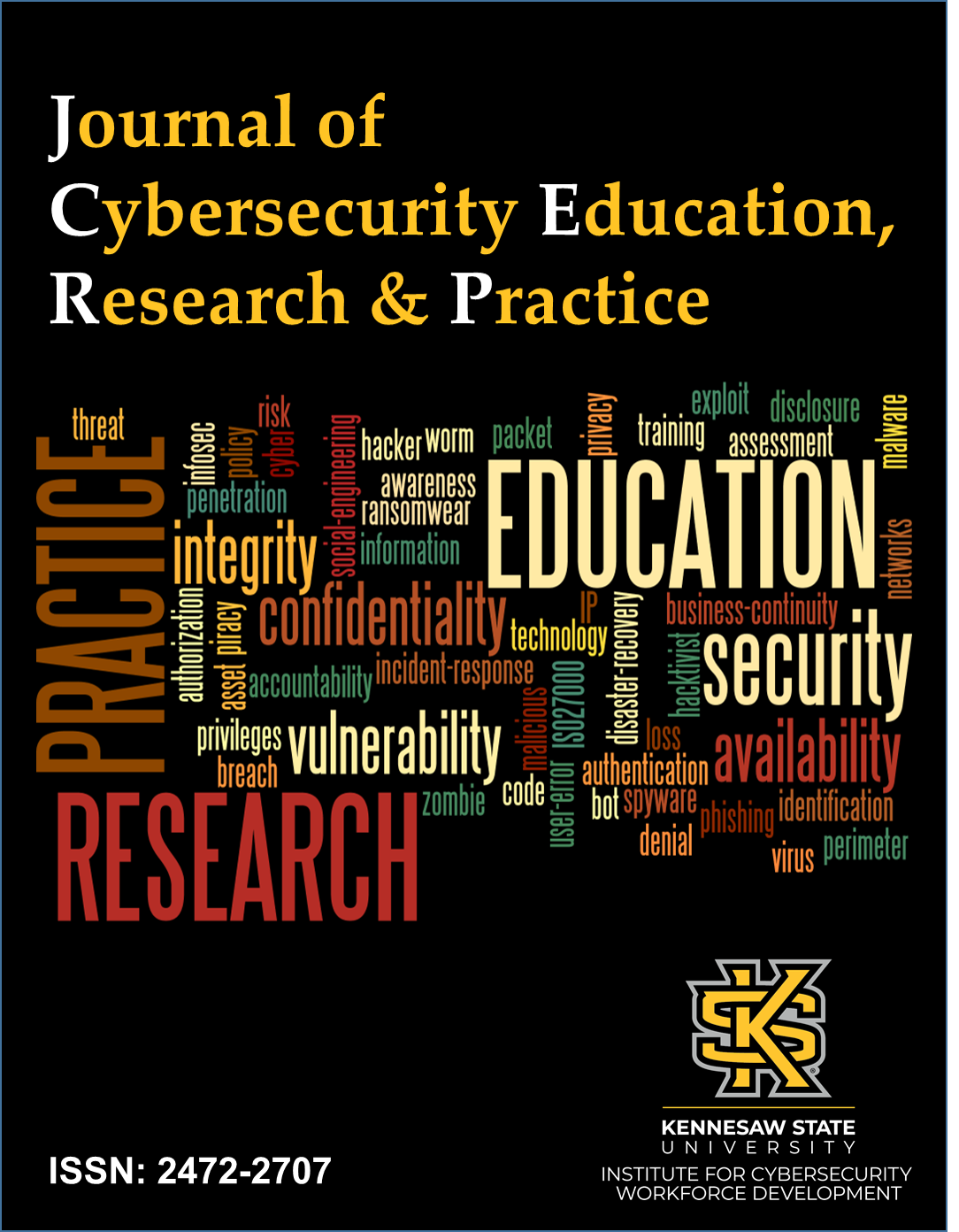The Journal of Cybersecurity Education Research and Practice (JCERP) is a peer-reviewed scholarly online journal dedicated to promoting scholarship among faculty teaching and researching Cybersecurity topics. JCERP seeks to collect and publish high-quality research, perspective, and best practice articles on the understanding, investigation, conduct and instruction of security related topics written specifically for an academic audience. JCERP is continuously published as articles are accepted.
See the Aims and Scope for a complete coverage of the journal.
JCERP is indexed in Directory of Open Access Journals (DOAJ) and in the U.S. Department of Education's Education Resources Information Center (ERIC).
Any submission that is not accepted after two rounds of reviews will be rejected. The author(s) may resubmit as a new submission once they have addressed any shortcomings in the manuscript.
Due to an ongoing and persistent shortage of reviewers, JCERP requires that the author(s) of a submitted manuscript commit to reviewing at least two papers for the Journal, prior to the publication of their article.
Submissions accepted for publication will remain pending until the authoring team has completed two reviews. If this commitment is not met within 12 months, any accepted and pending articles may be subject to rejection.
Authors that have reviewed for the journal in the past 12 months will have their service counted toward this obligation.
Articles
A Review of Routing Attacks in Routing Protocol Over Low-Power and Lossy-based IoT Networks
Lanka Chris Sejaphala Mr., Vusimuzi Malele Prof, and Francis Lugayizi Prof.
Integrating Adversarial Scenarios into LLM Security Labs: An Experience Report on a Hands-On Approach
Dominic A. Wilson
Cyber Science Education Meets Healthcare Technology
Angela Spencer
Cybersecurity in Higher Education Institutions: Awareness, Policy, and Experience on Employee Behaviour
Abdullahi Abiodun Yusuf and Adriana A. Steyn
